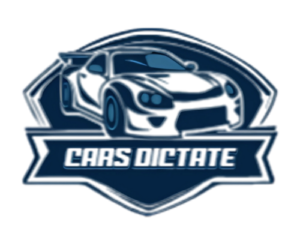Experiencing a rattle in your Audi A4 during acceleration can be alarming. Not only can it diminish your driving experience, but it may also indicate potential mechanical problems that could worsen if not addressed promptly.
If your Audi A4 makes a rattling sound during acceleration, it could be due to loose heat shields, worn engine mounts, exhaust problems, transmission issues, or a faulty drive belt. Inspect and fix these components to resolve the noise.
To help Audi A4 owners understand and resolve this issue, we will explore the most common causes of rattling, the solutions to these problems, and preventive measures to ensure a smooth and quiet ride.
For more details about Audi, begin exploring your information with Carsdictate.
Common Causes of Rattling in Audi A4 During Acceleration
Rattling noises in your Audi A4 while accelerating can arise from various problems. Identifying the cause is crucial for fixing it. Below are some of the most common reasons:
Worn or Loose Timing Chain/Belt:
The timing chain or belt ensures the synchronization of the camshaft and crankshaft. If it becomes loose, worn, or fails, it can create a rattling noise during acceleration and potentially cause serious engine damage.
Key Symptoms:
- Rattling or clicking sounds from the engine
- Engine misfires or rough idling
- Check engine light illuminated
Faulty Catalytic Converter:
A damaged or clogged catalytic converter can cause a rattling sound due to debris buildup. Since this component reduces emissions, its failure can also impact engine performance.
Key Symptoms:
- Rattling noise, especially when accelerating
- Decreased engine performance
- Increased exhaust emissions
Loose Heat Shields:
Heat shields are designed to protect parts from the excessive heat generated by the exhaust system. Over time, they may become loose or corroded, leading to a rattling noise that becomes noticeable during acceleration.
Key Symptoms:
- Metallic rattling sound
- Rattling intensifies with speed or RPM increase
- Noise seems to come from beneath the vehicle
Exhaust System Issues:
Loose or damaged exhaust parts such as pipes, hangers, or mufflers can cause rattling noises during acceleration. Engine vibrations may make this issue more noticeable.
Key Symptoms:
- Noise when the car is moving
- Increased cabin vibration
- Audible changes during acceleration or deceleration
Suspension and Chassis Problems:
Worn or loose suspension and chassis parts, like control arms, struts, or bushings, can lead to rattling noises during acceleration or when driving over uneven surfaces.
Key Symptoms:
- Rattling or clunking when driving over bumps
- Uneven tire wear
- Reduced handling performance
The Role of the Timing Chain and Belt in Rattling Issues
The timing chain or belt is crucial for ensuring smooth engine performance in the Audi A4. The type of component depends on the vehicle’s model year and engine type. When these parts become worn or loose, they can create a rattling noise, particularly during acceleration.
Why is Timing Chain or Belt Failure Important?
A failing timing chain or belt can disrupt engine synchronization, potentially leading to serious damage. The rattling noise is frequently an early warning signal. Ignoring it can result in:
- Engine misfires
- Valve damage
- Complete engine failure
How to Detect Timing Chain or Belt Problems?
Issues with the timing chain or belt can typically be identified by a rattling sound coming from the front of the engine during acceleration. Other signs include rough idling, stalling, or a check engine light.
If these symptoms appear, it’s important to have the vehicle inspected by a professional mechanic as soon as possible.
Exhaust System Issues Causing Rattling
The exhaust system is responsible for controlling emissions and reducing noise. Damage, looseness, or corrosion in this system can lead to rattling sounds. Here are some common exhaust-related causes:
Loose or Damaged Exhaust Pipes:
Exhaust pipes can corrode or become loose over time, producing rattling sounds. This noise is often more noticeable during acceleration, as the increased exhaust flow makes it louder.
Catalytic Converter Problems:
A malfunctioning catalytic converter is a common cause of rattling. The internal honeycomb structure can break apart, leading to debris rattling inside the converter.
Muffler Issues:
A rusted or damaged muffler can also produce rattling sounds during acceleration. If you notice changes in the exhaust noise along with rattling, the muffler may be the problem.
Loose Heat Shields and Exhaust Hangers:
Loose heat shields and damaged exhaust hangers can cause rattling noises as well. These parts are vital for securing the exhaust system and shielding other components from heat.
Suspension and Chassis Problems
While engine and exhaust issues are often behind rattling noises in the Audi A4, suspension and chassis components should not be overlooked, over time, parts like control arms, sway bar links, and bushings can wear out, causing rattling sounds, especially when accelerating or driving on rough surfaces.
Recognizing Suspension-Related Rattles
Rattling sounds from the suspension often get worse when driving over bumps or while making turns. If your Audi A4’s handling feels unusual or you notice uneven tire wear, it’s a good idea to inspect the suspension components for damage or wear.
Common Suspension Issues in the Audi A4
- Worn Control Arm Bushings:
Control arm bushings act as cushions, absorbing impacts. When they wear out, metal parts may start vibrating against each other, causing rattling.
- Damaged Strut Mounts:
Struts help support the vehicle’s weight and absorb shocks. If the mounts are damaged, they can create a rattling noise.
- Loose Sway Bar Links:
Sway bar links help stabilize the vehicle. When they become loose or worn, rattling noises may be heard, especially when turning or accelerating.
How to Identify and Fix Rattling Noises in Your Audi A4?
Properly identifying the source of a rattling noise in your Audi A4 can save time, and money, and prevent bigger issues. Follow these steps to find the cause:
1. Pay Attention to When the Noise Occurs:
First, observe when the rattle happens. Does it only occur during acceleration? Is it present when idling or going over bumps? Knowing when the noise happens is key to diagnosing the issue.
2. Inspect the Engine Bay:
If the rattle seems to come from the engine, focus on parts like the timing chain, belt, or other moving components. Open the hood and listen closely.
3. Check the Exhaust System:
Examine the exhaust system for any loose parts, such as the catalytic converter, muffler, or heat shields. If possible, lift the vehicle and gently tap the exhaust pipes to see if the noise returns.
4. Inspect the Suspension and Chassis:
If the noise is louder over bumps or uneven surfaces, check the suspension. Look for worn bushings, loose control arms, and strut mounts.
5. Consult a Professional if Necessary:
If you’re unable to pinpoint the problem yourself, consult a professional mechanic experienced with Audi vehicles. A thorough inspection by an expert will reveal the issue.
Solutions for Rattling Noises: DIY and Professional Options!
Once you’ve identified the source of the rattling, you can decide whether to fix it yourself or seek professional help.
Timing Chain or Belt Replacement:
Replacing the timing chain or belt is complex and not recommended for DIY unless you have advanced skills. It involves disassembling parts of the engine, so it’s best left to a professional mechanic.
Exhaust System Repairs:
Minor faults, such as loose heat shields or exhaust hangers, can often be repaired at home using simple tools. However, if the catalytic converter or muffler is damaged, it’s better to visit a repair shop.
Suspension Repairs:
You may be able to replace worn bushings or struts yourself, depending on your skills. However, some suspension repairs require specialized tools and alignment, making professional service a better option.
Preventative Maintenance to Avoid Rattling
Regular maintenance is the most effective approach to avoid rattling difficulties. Routinely inspect the timing chain or belt, exhaust system, and suspension components. Catching wear or damage early can prevent costly repairs in the future.
The Importance of Timely Repairs and Maintenance
Ignoring a rattling noise in your Audi A4 can lead to more serious damage over time. Whether it’s related to the engine, exhaust, or suspension, addressing the issue early can prevent further wear and tear.
Regular maintenance and prompt repairs are key to keeping your Audi A4 reliable, safe, and performing at its best.
Why is My Audi Engine Making a Rattling Noise When Accelerating in Birmingham?
One of the most concerning issues while driving is when your car starts making a rattling noise during acceleration. A rattling sound coming from your Audi’s engine can reduce your vehicle’s performance over time.
There are several potential reasons why your Audi might rattle during acceleration, and it requires proper diagnosis and repair to address.
What to Do If Your Audi Jerks When Accelerating?
If your car jerks when accelerating, it can be unsafe to drive. This could be caused by various issues, and pinpointing the root cause can be challenging, especially if you’re unsure where to start. Here are some measures you can take to figure out the best course of action.
1. Perform a Visual Inspection:
Begin by inspecting parts that might be related to the issue, such as the spark plugs and fuel injectors. Also, check the fuel and air filters to ensure they are in good condition. If any of these parts are worn out, replace them immediately.
2. Seek Professional Help:
If your Audi continues to jerk during acceleration, it’s important to consult a certified professional. After a detailed inspection, a mechanic can pinpoint the root cause and suggest the necessary repairs.
Most Common Causes of Rattling Noises in an Audi A4
The primary sources of rattling noises in an Audi A4 often involve issues with the ball joints, struts or strut mounts, as well as problems with the sway bar links.
- 28% of cases are due to ball joints.
- 16% of cases involve struts or strut mounts.
- 12% of cases are caused by sway bar links.
- The remaining 44% are due to other factors.
Why is My Audi Making a Rattling Noise When I Accelerate?
A rattling noise during acceleration can stem from several issues, such as loose heat shields, damaged engine mounts, worn exhaust components, or insufficient lubrication in the transmission. Each of these problems can allow parts to move more than they should, resulting in noise.
Why is My Audi A4 Rattling When I Drive?
This may be caused by a loose or broken engine mount. The torque generated during acceleration can twist the engine, moving it left to right or front to back, depending on its mounting.
Can Low Transmission Fluid Cause Rattling Noise?
Yes, low transmission fluid can lead to extra metal-on-metal contact within the transmission, resulting in a rattling noise that sounds like rocks when accelerating. Fortunately, this issue is relatively easy to fix if caught early.
When I Press the Accelerator, My Car Makes a Noise?
A loud squeaking or squealing sound during acceleration may indicate a problem with your engine belt. This could be due to a loose or worn belt or a failing pulley. Conversely, a loud rumbling noise might suggest an issue with the exhaust system.
What is the Metal Rattling Sound Under My Car?
A metallic rattling sound could indicate misalignment in the exhaust system components or loose or corroded brackets within the system.
Frequently Asked Questions:
Is it safe to drive my Audi A4 if it rattles while accelerating?
While occasional rattling may not be serious, it’s important to have it inspected promptly. Ignoring the noise could lead to more significant problems, affecting safety and performance.
Could a faulty timing belt cause rattling in my Audi A4?
A worn or failing timing belt can produce a rattling noise, especially during acceleration. If you suspect a timing belt issue, it’s crucial to have it inspected and replaced to prevent severe engine damage.
What are common signs that indicate my Audi A4’s engine mounts are failing?
Common signs of failing engine mounts include excessive vibration, a noticeable rattling noise during acceleration, and engine movement when shifting gears. If you experience these symptoms, it’s advisable to have the mounts checked.
What role does the sway bar play in preventing rattling noises?
The sway bar helps stabilize your vehicle and reduces body roll during turns. If the sway bar links are worn or loose, it can lead to rattling noises, especially during acceleration or when turning.
How often should I inspect my Audi A4 for rattling issues?
Regular inspections should be part of your maintenance routine, especially if you notice any unusual sounds. It’s a good practice to have a professional check your vehicle at least once a year or if you experience new noises.
What should I do if my Audi A4 rattles only during cold starts?
If your Audi A4 rattles primarily during cold starts, it may be related to engine oil viscosity or timing chain tension. Consider having the oil checked and possibly changed, and consult a mechanic for further investigation.
Can a loose exhaust system cause rattling in my Audi A4?
Yes, a loose exhaust system can definitely cause rattling noises. Components like exhaust pipes, hangers, or the catalytic converter may become loose or damaged, leading to noise during acceleration.
Conclusion:
At the end of the conclusion,
If your Audi A4 produces a rattling noise while accelerating, it may be caused by loose heat shields, worn engine mounts, exhaust issues, transmission problems, or a faulty drive belt. Checking and repairing these components can help eliminate the noise.










